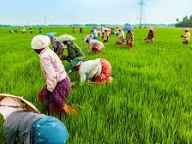Sarah NEGEDU
Women Agro Processors in the country have asked the federal government to modernise and transform the nation’s ports management system to make them competitive and user friendly for business owners.
The Women group, Women Agro Processors, Agricgen and Exporters Initiative, WAPAGEIN, believe that the removal of administrative bottlenecks at the ports will better reposition them and stimulate the nation’s economy.
The president of WAPA-GEIN, Esther Adebayo, made the call last week at the inauguration of the initiative and National Export Centre.
“I am of the opinion that the Federal Government should not be decongesting the Ports in Nigeria but engage in transforming the ports.
“This must start with cleaning up administrative bottlenecks most of which are unnecessary with multiple government agencies at the port, high transaction cost, or even plain extortion from illegal taxes, which do not go in to the coffers of the government.
“Nigeria should rapidly modernize and transform its ports. Ports are not there for equipment revenue generation. They should be for facilitating business and exports, and stimulating industrial manufacturing, and competitiveness of local business and exports.”
Adebayo who decried the high cost of importation and clearing of goods in Nigeria, said this has made Nigerian ports unattractive.
“The cost of exporting 100tons of cargo in Nigeria was 35,000 dollars compared to 4000 dollars in Ghana. Today the leading ports for West Africa are in Cote d’Ivoire, Ghana, Togo and Benin Republic. All these countries have modernised their Port management systems, leaving Nigeria far behind.”
She also emphasised the need for the Federal Government to increase the training and employment of extension workers and other supportive services to boost increase in agricultural production.
“We must unleash the potential of the youths of Nigeria. Today over 75 percent of the population is under the age of 35 years.
“More decisive actions are needed to turn this demographic asset into an economic dividend. A young productive, youthful population with access to education, skills, social protection, affordable housing, and medical care will power Nigeria’s economy now and well into the future.
“We must move away from so called youth empowerment programs. The youth do not need hands out, they need investments. Agro business is well loaded with millions of jobs creation for the youths.”



